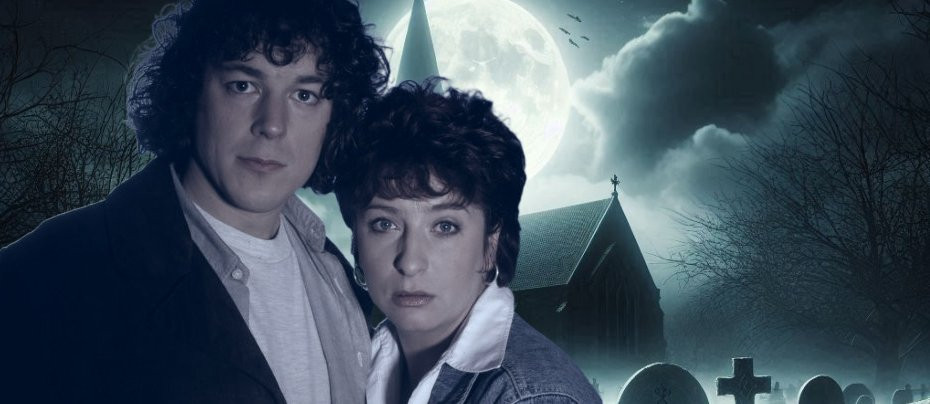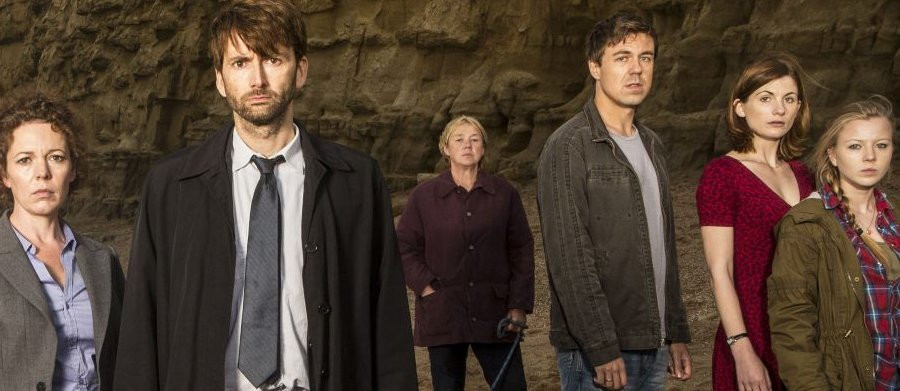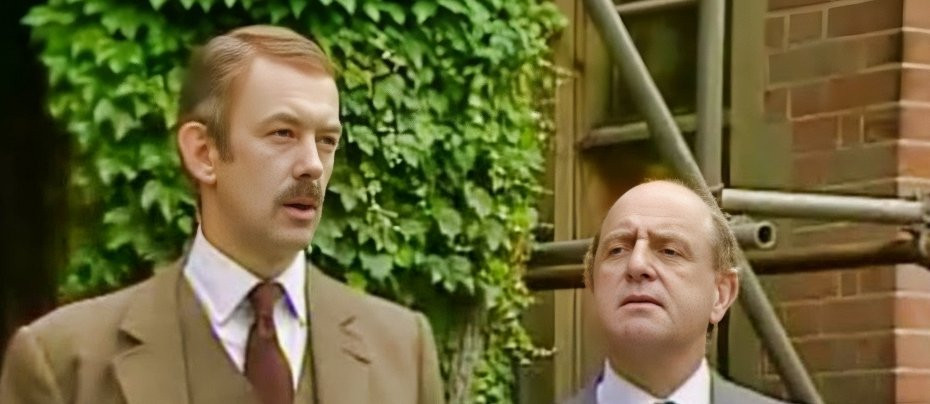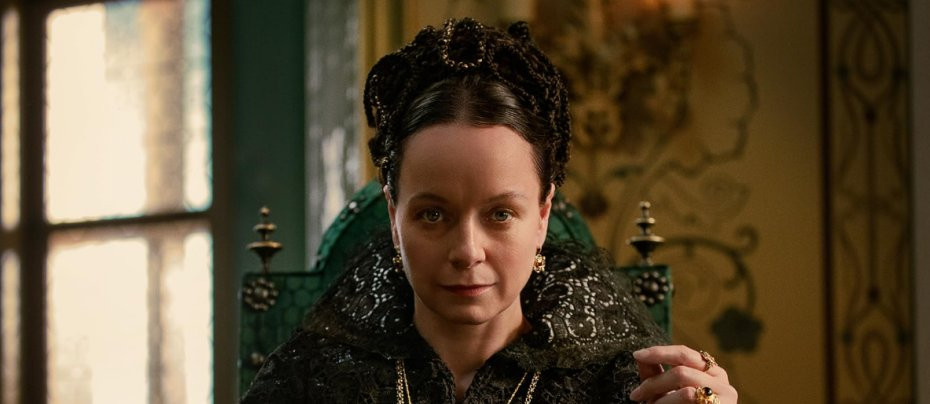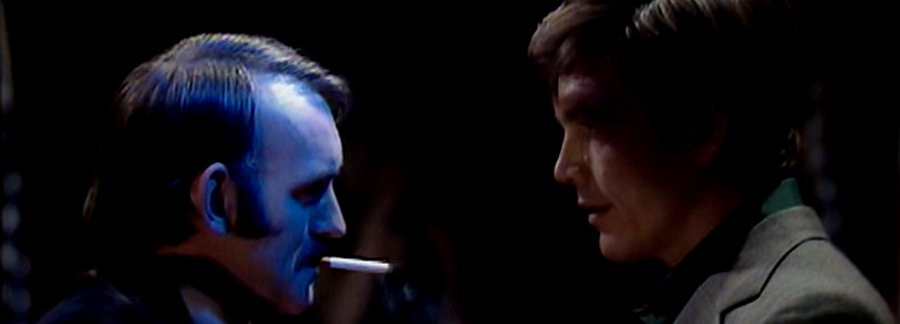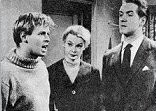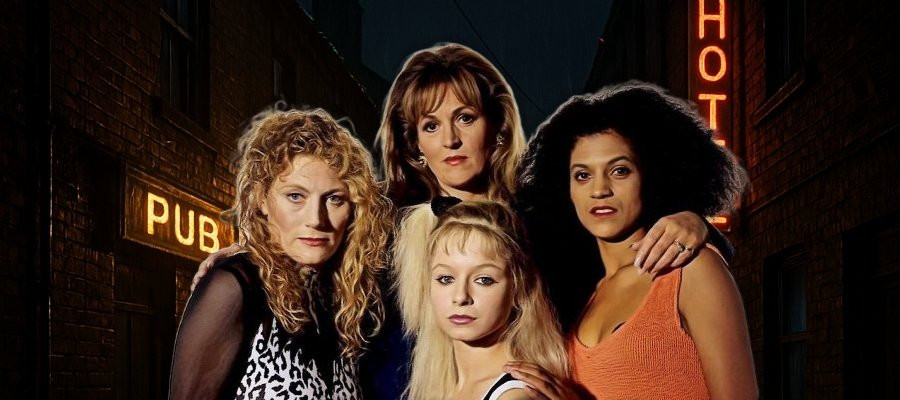
Band of Gold
1995 - United KingdomBand of Gold is a searingly honest, emotionally raw, and gripping British crime drama that first aired in 1995, tackling the lives of a group of women working in Bradford’s red-light district. Created by Kay Mellor and produced by Granada Television, the series is both a social commentary and a murder mystery, blending gritty realism with intense human drama.
At the heart of the story is Gina Dickson (Ruth Gemmell), a young mother forced into sex work by poverty and desperation after fleeing her abusive husband. What follows is not simply a tale of hardship, but a layered exploration of survival, loyalty, and the ways in which women navigate a world stacked against them. Gina’s journey is tragically brief—her brutal murder at the end of the first episode sets the tone for the rest of the series, which shifts into a suspenseful whodunit without ever losing sight of its emotional core.
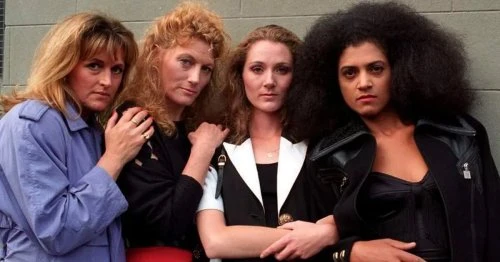
The ensemble cast is formidable. Cathy Tyson gives a standout performance as Carol, the pragmatic yet increasingly fragile sex worker whose bond with Gina is both touching and tragic. Geraldine James plays Rose with a steely resolve masking deep vulnerability, while a young Samantha Morton delivers a heartbreaking turn as Tracy, a teenager broken by abuse and addiction. Barbara Dickson is a surprisingly grounded presence as Anita, the landlord-cum-confidante who provides more than just a roof over the women’s heads even though she struggles to get by while her benefactor George Ferguson (Tony Doyle) controls her.

The writing never flinches from the bleakness of its subject matter—loan sharks, abusive pimps, predatory clients, and corrupt police are all present—but Mellor’s script also imbues the characters with dignity and resilience. There’s no glamour here, only grit, but there is also a powerful sense of solidarity among the women that serves as the emotional backbone of the story.
One of the show’s strengths lies in its refusal to paint any character in broad strokes. Carol's entanglement with a police detective (DCI Newall – David Schofield) who exploits her vulnerability adds an extra layer of moral complexity. Meanwhile, Rose’s attempt to go straight and find love outside her past ends in rejection, highlighting the pervasive stigma the women face even when trying to rebuild their lives.
The murder mystery arc is compelling, with a well-paced build-up to the reveal of the killer—a community board member hiding in plain sight. Though the climax is somewhat melodramatic, the resolution is satisfying.
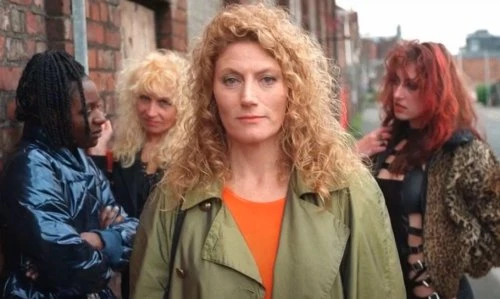
Visually, the series captures 1990s northern England with authenticity, from the dimly-lit streets of “the Lane” to the tired interiors of flats and community halls. It’s a world marked by economic decay and social neglect, yet rendered with care and precision.
Band of Gold ends its first series on a cautiously hopeful note, with Carol and Rose vowing to leave prostitution behind and start a legitimate business. It’s a redemptive arc that feels earned, not contrived, and offers a glimmer of light in a world where hope is often in short supply.
Following the critical success of its inaugural run, Band of Gold returned for a second series that was darker, more emotionally charged, and just as gripping.
Series 2 opens with a sense of cautious optimism. Former prostitutes Carol and Rose have left the Lane behind and launched Scrubbit, a cleaning co-operative backed financially by Anita. For a brief moment, there’s a glimmer of redemption. But that light is quickly eclipsed by the return of George Ferguson, newly released from prison and still seeking control, along with the looming threat of local gangster Alf Black.
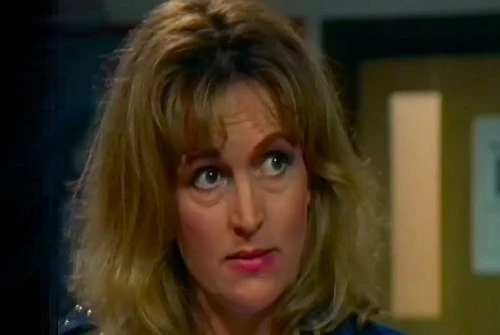
The tone of this second outing is undeniably bleaker. The murder mystery of Series 1 gives way to a tangled web of betrayal, mental illness, and moral compromise. The series wastes no time in plunging its characters back into danger: Carol finds herself implicated in the brutal murder of Curly (Richard Moore), her former client, and the subsequent death of George. The pair’s decision to cover up Curly’s murder, however clumsy, leads to mounting suspicion and a police investigation that brings Carol to the brink once again.
Samantha Morton’s portrayal of Tracy is particularly haunting this series. Having returned to Bradford, she becomes romantically and financially entangled with Alf Black (David Bradley), whose drugs send her into a downward spiral of delusion and violence. Her eventual suicide, following the murder of her abusive father, is one of the most tragic and unflinching moments in the show’s run. Morton brings a rawness to the role that is difficult to watch, yet impossible to ignore.
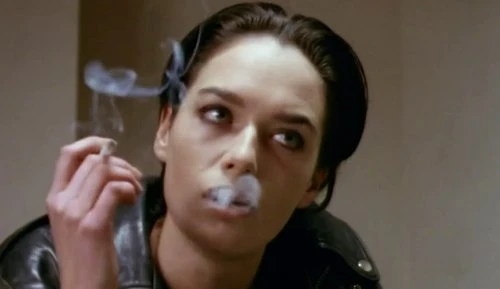
Newcomer Lena Headey adds further complexity as Colette, a troubled and enigmatic young woman who joins the circle and brings her own baggage to an already volatile group. Though her arc is somewhat underdeveloped, Headey leaves a strong impression.
There is no shying away from taboo here. Mellor continues to probe uncomfortable truths, including Carol's inheritance from Curly, the blurred lines of power and exploitation, and a highly controversial subplot involving Gina’s estranged husband Steve and her mother Joyce. This thematic fearlessness is part of what sets Band of Gold apart: it refuses to tidy up the messiness of real life.
Visually and tonally, Series 2 maintains the grit of its predecessor. The grey streets of Bradford are once again painted with realism rather than melodrama. The writing remains sharp, though the plot occasionally veers toward the implausible. Still, the emotional resonance is never lost.
The series ends in the same bittersweet key with which it began—at Tracy’s funeral, her friends raise a toast in her memory. It’s a stark reminder that survival in this world often comes at a heavy cost.
Rebranded simply as Gold, the third and final series of Band of Gold marks a significant tonal and structural shift. While it continues to follow central characters Carol and Rose, its narrative detours into broader crime-thriller territory, pulling away from the intimate, street-level storytelling that made the original series such a standout. The result is a series that is still compelling—often gripping—but slightly removed from its raw, emotional roots.
Set against a backdrop of sudden wealth, institutional failure, and escalating violence, Gold opens with Carol adjusting to her new life as the heiress to Curly’s estate. The inheritance, which includes a cleaning business and factory, becomes both a symbol of empowerment and a source of chaos. Curly’s nephew, Vinnie, is intent on discrediting her, hiring a private investigator to prove she’s unworthy of the fortune. Simultaneously, her personal and professional life are upended by betrayal, threats, and fire—literally.
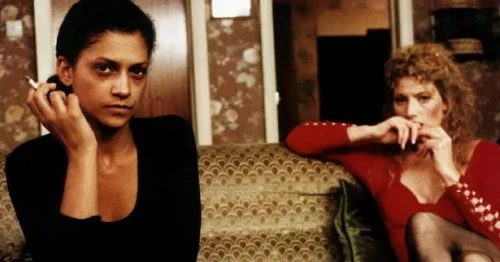
Rose, meanwhile, undergoes the most significant transformation of any returning character. No longer working the streets, she now serves as a community liaison officer, working closely with the police to support women in the sex industry. Her journey leads her to help a number of women in crisis—most notably Sherrie (Daniel Edwards), a young transsexual prostitute who is brutally raped and then left unprotected by the system meant to support them. Rose’s role in fighting for justice marks a strong and meaningful arc, though it sometimes sits uneasily alongside the show’s more sensational moments.
Throughout the series, Gold juggles several complex subplots: a suspected escort murderer, shady business dealings, gangland violence, and a disturbing case involving Carol’s half-sister Lisa, who is lured into prostitution. These threads culminate in a fiery, high-stakes finale where Carol’s factory is set ablaze with multiple characters trapped inside. It’s a dramatic, almost operatic conclusion, and while it may push credulity, it undeniably lands with impact.
Despite its deviation into more traditional crime drama, Gold doesn’t lose sight of its core theme: the resilience of women facing systemic failure and personal trauma. Cathy Tyson once again anchors the series with a grounded performance, and Geraldine James provides a compelling counterpoint as Rose—reformed, resolute, and quietly heroic. Their bond, forged through shared grief and survival, remains the emotional backbone of the story.
What Gold loses in the gritty realism of Series 1 and the bleak intensity of Series 2, it gains in narrative closure. This is a more plot-driven season, occasionally at the expense of character depth, but it still delivers powerful moments—particularly in its handling of institutional betrayal and the dangers women face when caught in cycles of exploitation.
Across its three series, Band of Gold evolves from a character-led drama rooted in social realism to a high-stakes crime saga. While not every twist lands with equal force, the series never loses sight of the women at its core. It’s a rare example of television that tells working-class stories with empathy, deference, and without flinching.
Kay Mellor’s writing gives voice to women often sidelined by society, and her legacy endures through this powerful, groundbreaking work.
Rating: ★★★★☆
Essential viewing for fans of character-driven drama, crime fiction, and feminist storytelling.
Seen this show? How do you rate it?
Seen this show? How do you rate it?
Published on July 2nd, 2025. Written by Laurence Marcus for Television Heaven.



